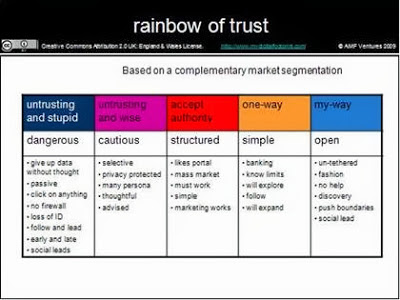Mindsets which can destroy the value of data!

Tony Fish @My Digital Footprint I have been working with several teams on data driven innovations and failing to create the value expected. Listed below are some mindsets which I have come across that appear to create hurdles to the data opportunity. The theme underlying these views, I believe, is the same as the old philosophy argument on behaviour and judgement which is “are you Fact or Opinion biased?” Personally I am defiantly and firmly in the “tell me your opinion.” The Internet has allowed the world to find, no matter what the opinion, some data to support it. As I can/will always find facts to back any story, I want to know what you’re thinking, why you hold that view and what drives you. Why do I think this; because strategy and innovation is a judgement on outcomes and not a science. I find it interesting that many are trying to prove me right or wrong with their data, rather than accepting that my opinion is mine and it is neither right or wrong but based on












